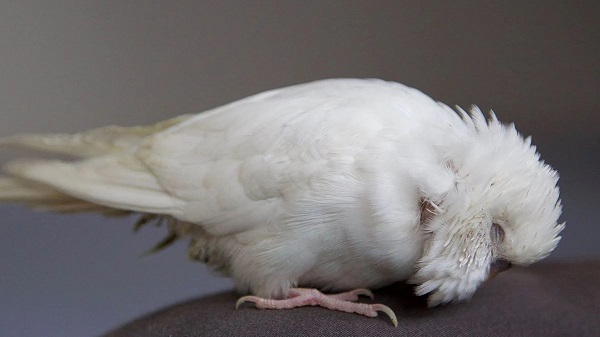
Pet birds bring joy and companionship to countless households worldwide. However, just like their human counterparts, birds can also experience health issues that require attention and care. Anorexia, the loss of appetite and refusal to eat, is a concerning condition that can affect pet birds. In this article, we will explore the symptoms, causes, and potential solutions for anorexia in pet birds, shedding light on this often-overlooked issue.
Symptoms of Anorexia in Pet Birds
Anorexia in pet birds is marked by a noticeable loss of appetite and a reluctance or refusal to eat. This can manifest in various ways, including decreased interest in food, picking at food but not consuming it, or entirely ignoring food. Other symptoms may include weight loss, lethargy, depression, decreased vocalization, and changes in droppings.
Causes of Anorexia in Pet Birds
Several factors can contribute to anorexia in pet birds. It is crucial to identify and address the underlying cause to provide effective treatment. Here are some common causes:
Medical Conditions
Anorexia can be a symptom of an underlying medical issue such as infections, gastrointestinal disorders, liver disease, respiratory problems, or nutritional deficiencies. Avian veterinarians play a vital role in diagnosing and treating these conditions.
Environmental Factors
Changes in the bird’s environment, including relocation, unfamiliar surroundings, or exposure to stress-inducing stimuli, can lead to anorexia. Birds are highly sensitive to their surroundings, and any disruption can affect their appetite.
Behavioral Issues
Behavioral problems, such as fear, anxiety, depression, or social isolation, can contribute to anorexia in pet birds. Birds are social animals, and the absence of social interaction or companionship can negatively impact their well-being.
Possible Solutions for Anorexia in Pet Birds
Addressing anorexia in pet birds requires a multi-faceted approach, considering both medical and environmental factors. Here are some potential solutions:
Veterinary Care
If you notice signs of anorexia in your pet bird, consult an avian veterinarian immediately. They will conduct a thorough examination, perform diagnostic tests if necessary, and recommend appropriate treatment options.
Dietary Modifications
Avian veterinarians may suggest changes to your bird’s diet, including the introduction of new foods, supplements, or specific feeding techniques. Ensuring a balanced and nutritious diet is essential for a bird’s overall health and appetite.
Environmental Enrichment
Create a stimulating and enriching environment for your bird. Provide toys, perches, and opportunities for physical activity to alleviate boredom and reduce stress. Social interaction and companionship with their owners or fellow birds can also promote a healthy appetite.
Minimizing Stress
Identify and eliminate potential stressors in your bird’s environment. Maintain a consistent routine, avoid sudden changes, and provide a peaceful atmosphere for your bird to thrive.
Additional Resources
For further information and guidance on anorexia in pet birds, consider visiting the following reputable websites:
This website provides comprehensive information on various aspects of avian health and care, including anorexia in pet birds. Their articles are well-researched and provide valuable insights into avian health issues.
The Association of Avian Veterinarians (AAV) is a professional organization dedicated to avian medicine. Their website offers resources for bird owners and provides access to qualified avian veterinarians who can assist with diagnosing and treating anorexia in pet birds.
Anorexia in pet birds is a concerning condition that can significantly impact their health and well-being. Recognizing the symptoms, understanding the potential causes, and implementing appropriate solutions are crucial steps towards helping birds regain their appetite and overall vitality. By seeking professional veterinary care, making dietary adjustments, providing an enriching environment, and minimizing stress, bird owners can effectively address anorexia and ensure the well-being of their feathered companions.
Related Articles & Free Email Newsletter Sign Up
How to Avoid Malnutrition in Pet Birds
How to Deal with Lice in Pet Birds


Comment here